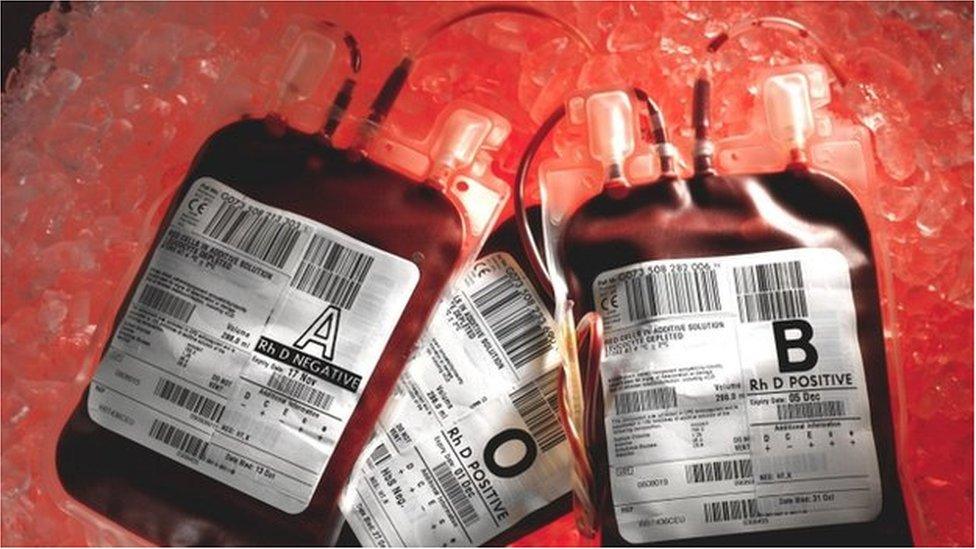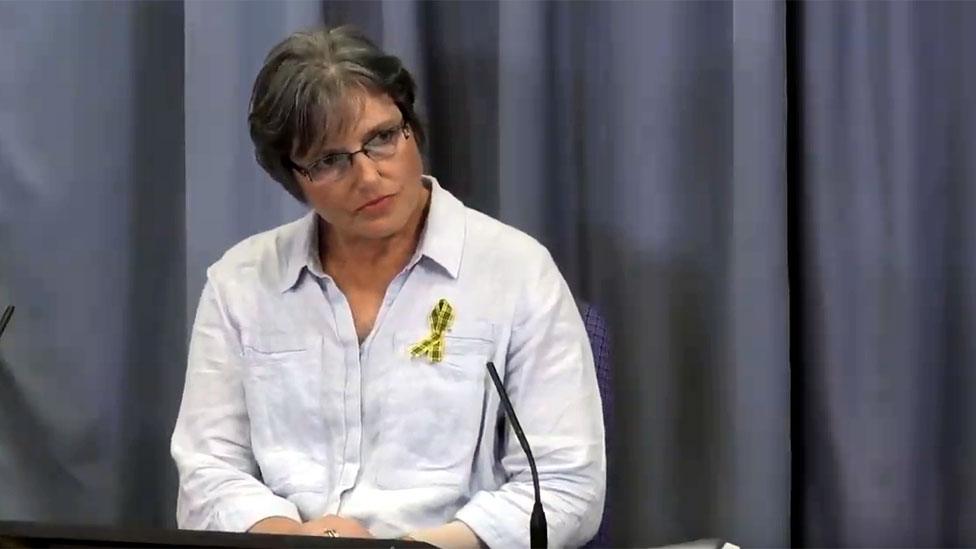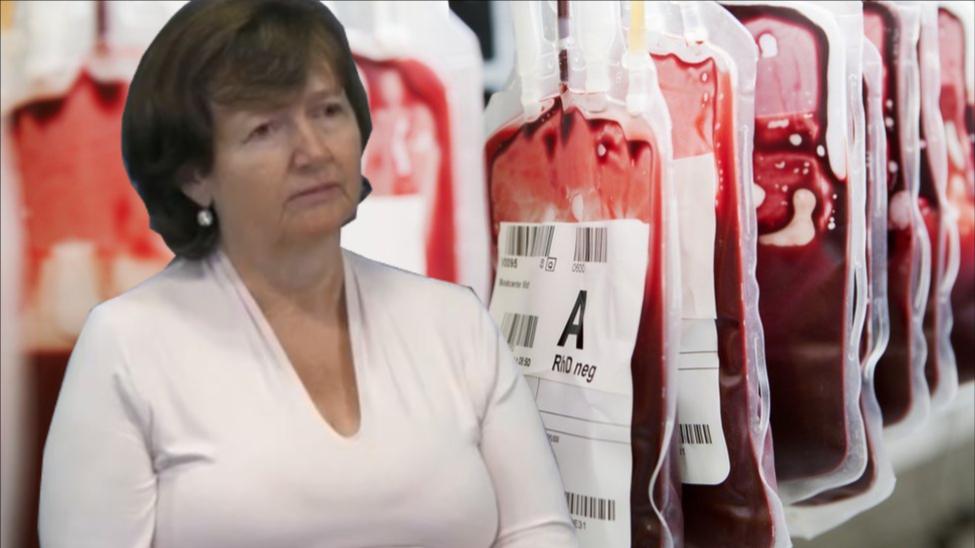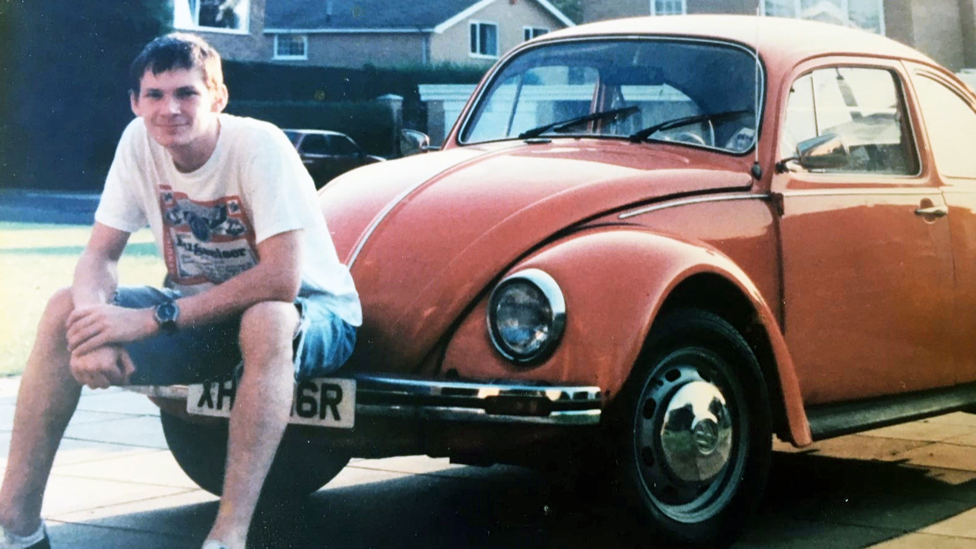Contaminated blood inquiry: Man tells of hepatitis 'hell'
- Published

A man has described the "hell" of two failed cycles of treatment for hepatitis C, which he contracted after a blood transfusion.
The witness, known as Mr X, told the Infected Blood Inquiry in Edinburgh he received the blood in Dumfries and Galloway in 1976 when he was 18.
He described the side-effects of the medication on his physical and mental health as "horrific".
Mr X said one treatment was "like being napalmed from the inside out".
The told the inquiry said the virus was cleared by a third round of treatment in 2016.
But the long-term damage to his liver meant his health was still likely to deteriorate.
'Lack of evidence'
He said that he believed the blood he had received had come from America, although letters from health officials said no hospital records existed.
Financial support was also refused, he said, due to the lack of evidence of this treatment.
The Skipton Fund, which was set up in the wake of the contaminated blood scandal, is supposed to provide non-discretionary, ex-gratia payments to those infected with hepatitis by NHS blood.
Mr X said that "the absence of medical records, where they are lost or destroyed", along with a signed confirmation from a doctor that the infection was likely caused by medical procedures should automatically trigger the payment.
However, in practice, Mr X said: "It turns out that the Skipton Fund was a very discretionary fund, so it failed in its protocols, it failed in its set-up procedures and processes and failed miserably at being a non-discretionary fund."
He also said that he found "glaring" inaccuracies in his GP records that left him "flummoxed completely".
False claims
These included getting the number of children he has wrong, claiming his landlady was his partner and indicating he had taken drugs intravenously. He said these were false claims which he has had to fight to get corrected.
The inquiry also heard from the widow of a man who said his hepatitis C diagnosis and two failed spells of treatments caused him to spiral into alcoholism and led to his death.
She described meeting "the love of my life" at the age of 14, marrying at 17, and going on to have two children together.
Mrs Y also tearfully told the inquiry how her husband "became a different man" after his second attempt at treatment to cure the virus.
He told his family that he did not want to burden them any more. He left their family home - which they lost due to debt - and became an alcoholic before his death aged 45.
The UK-wide public inquiry is in Scotland for two weeks to hear from patients who contracted HIV and hepatitis from contaminated blood products in the 1970s and 80s, and from the families of people who were infected.
An earlier public inquiry into contaminated blood products in Scotland was labelled a "whitewash" by victims.
The Penrose Inquiry, external - published in 2015 - took six years and cost more than £12m, though its powers and terms of reference were limited.
- Published9 July 2019

- Published3 July 2019

- Published2 July 2019
